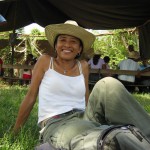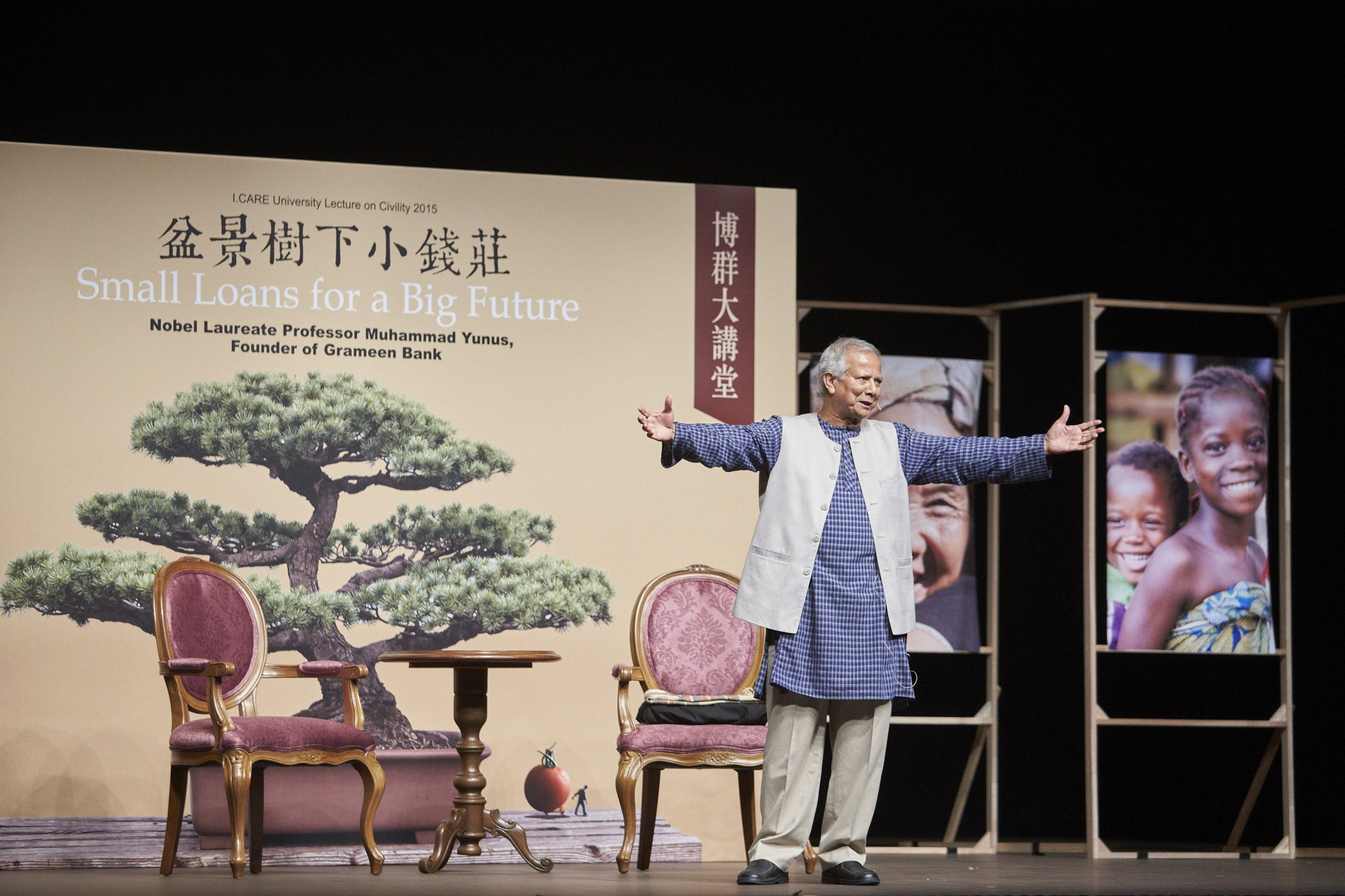發展項目2015年10月22日
Grameen Bank – Small Loans for a Big Future

陳美玲
陳美玲於1993年加入樂施會,2005年離職。在職期間,曾專責香港樂施會中國項目部以及國際項目部的發展項目設計、策略及擴展等工作。2013年,美玲重返樂施會,目前爲國際項目總監。
Professor Muhammad Yunus is a Bangladeshi university teacher in economics, a social entrepreneur and civil society leader, but most people know him as the founder of a bank for the poor called Grameen Bank. He was the first person who pioneered the concept of micro-finance, which has become a tool to alleviate poverty over the past three decades.
Professor Yunus was invited by the Chinese University of Hong Kong (CUHK) for a civility lecture entitled ‘Small Loans for a Big Future’. I told Professor Yunus at our common dining table after the talk that Oxfam Hong Kong was inspired by him and his experience by designing and implementing micro-credit projects all over the world, from China to Africa. He held my hand tightly and gave me a smile, and went on to acknowledge our work in his country and the world.
His talk at CUHK on 14 October impressed me throughout the whole two hours. He kept on telling us how he ‘rebelled’ against the theory of conventional banks – the concept that that poor people are not bankable or poor women are not credit worthy, which to him, are groundless. He criticised that nowadays banks only offer loans to people who are better off, but he has done the opposite. His mission in life is to create more opportunities and jobs for the poor so that poverty can be eradicated.
What drives him to do the things he has done for the poor? It is out of desperation, he said, to want to change the poverty he has witnessed in the villages in his country. It is that desperation that pushed him to leave his job as an economics professor, and instead set up banks in rural villages all over Bangladesh.
When asked about his secret to convincing women to save, loan and extend their businesses, and not to default loans, he said,
‘This (loan) is the mango tree, do not eat the tree, wait for the mangos then you can eat as much as you want!’
He also encouraged students in Hong Kong to not seek jobs but to create them and become social entrepreneurs.
He is a humorous person too. He said that loan sharks are not bad people – they are just in the wrong business!
When NGOs discussed whether Grameen Bank could work in Hong Kong at the dinner table with Professor Yunus, we felt pessimistic that it would succeed here, mainly because the cost of production is too high in setting up a business in Hong Kong. But CUHK’s Vice Chancellor threw out a challenging question worth exploring: what if people in Hong Kong borrowed loans and worked in China – would that work?
 Mayling Chan is the International Programme Director at Oxfam Hong Kong.
Mayling Chan is the International Programme Director at Oxfam Hong Kong.

